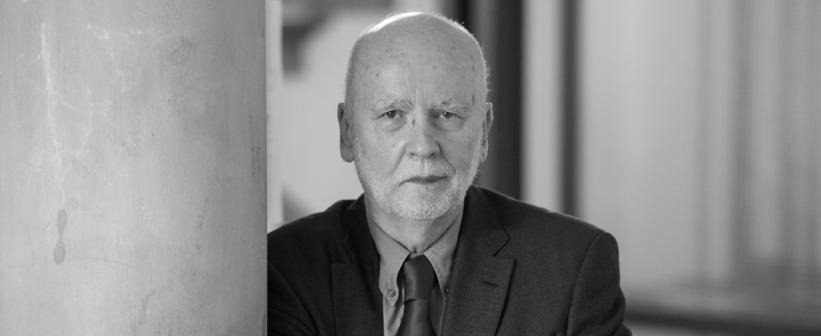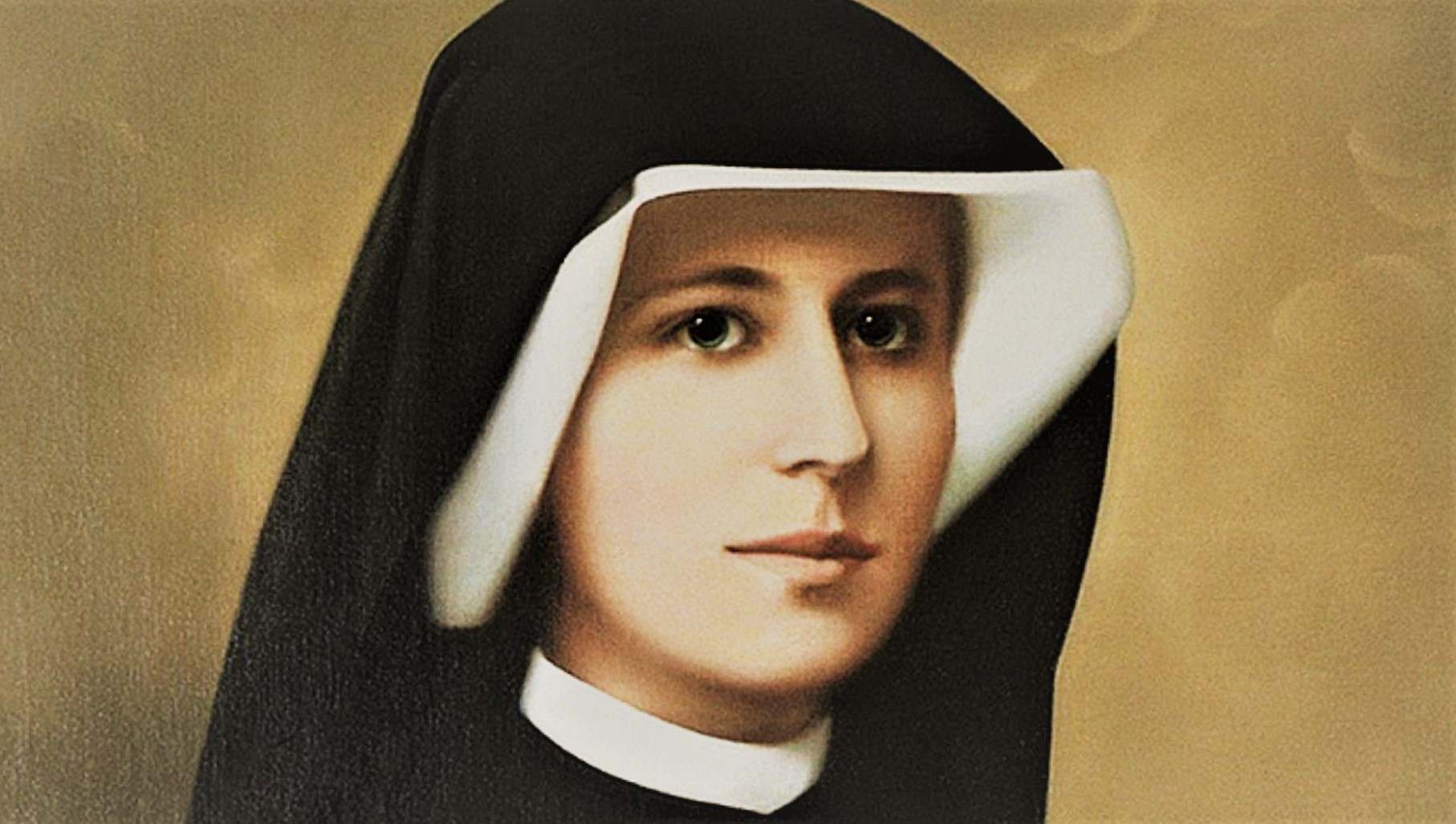On Sunday, 21 March 2021, the great Polish poet Adam Zagajewski passed away. In his poetic heyday, he would write poems critics called ‘classicising’, showing the world’s hidden beauty as well as emphasising the mysteriousness and uniqueness of human fate. And still, for a poet who defended the categories of beauty, mindfulness and detail, he did happen to be disconcertingly close to history and politics, elements that are powerful, mass in nature, and brutal.
by Wojciech Stanisławski
Great ‘political’ history was exerting an impact on the shape of his life almost from birth. However laconic, his each biographical note published after his passing, starts with the sentence ‘He was born in Lvov on 21 June 1945; that same year, the poet’s family moved to Gliwice, where he spent his childhood’. In 1945, such moves (of which Zagajewski’s French or Canadian readers may be unaware) were not motivated by a ‘desire of a better life’, professional advancement or family vicissitudes: they were related to the changes to Poland’s state borders agreed in Yalta and mass expulsion of Poles from towns that from then on were to belong to the Soviet Union. Lvov would remain an aspect of his family history not verbalised publicly for forty years; it is only in 1985, in a volume published during his émigré period that the poet reflects on the subject:
To go to Lvov. Which station
for Lvov, if not in a dream, at dawn,
when dew gleams on a suitcase, when express
trains and bullet trains are being born.
(‘To go to Lvov’)
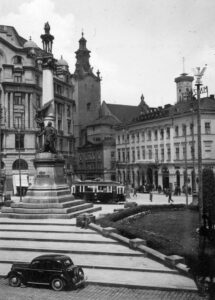
His family settled in Gliwice and stayed there for many years to come, the poet’s father, Tadeusz, became a lecturer at the Silesian University of Technology (if, in a hurry, one enters just the surname in a window of its library catalogue search engine, the titles Land of Fire and Meat Shops pop up on the screen together with his father’s Textbook of Industrial Electronics of 1972). Even in the early years, the radio at home may have been old-fashioned, with tubes, yet it broadcast History:
Through the thick fabric
of the speaker (my ear glued to you as
to the lattice of a confessional), Mussolini once whispered,
Hitler shouted, Stalin calmly explained,
Bierut hissed, Gomulka held endlessly forth.
But no one, radio, will accuse you of treason;
no, your only sin was obedience: absolute,
tender faithfulness to the megahertz;
whoever came was welcomed, whoever was sent
was received.
(‘Electric elegy’)
At the age of 18, Adam began university studies in Krakow, a city he would be linked to for most of his adult life. He graduated in Psychology and Philosophy (lecturing in the latter for several years), yet he would be talked about thanks to his poetry: soon after the debut (1967), a time came for manifestos in the form of articles. The New Wave formation, next to Zagajewski involving Julian Kornhauser, Jerzy Kronhold, Ryszard Krynicki and Stanisław Barańczak, champions the notion of ‘un-lying language’, returning credibility to it, and points to the possibility of audience manipulation. Some accomplishments of the group can be seen as belonging to the current of ‘linguistic poetry’, tried by many in the 1970s, from Miron Białoszewski to Tymoteusz Karpowicz, yet the New Wave was characterised by distrusting public language, censorship and linguistic manipulation of the audience. That marks an echo of the first adult experiences of that generation: 1968, when the USSR quelled the ‘thaw’ in Czechoslovakia and the communist party in Poland supressed a wave of student protests at universities, in both cases resorting to propaganda tools, using brutal, populist and dehumanising language.

In the first part of the 1970s, the most liberal time in the history of the Polish People’s Republic, Adam Zagajewski’s career was developing very promisingly: he collaborated with the top literary periodicals of the time, Twórczość and Odra, became a member of their editorial boards, and, last but not least, published, together with Julian Kornhauser, a poetic manifesto entitled The Unpresented World, a book where the authors appealed for calling reality as it was, without succumbing to escapist temptations, and for abandoning empty words. Those were, obviously, poetic postulates, yet they could also be read on a different plane: at that time, the ‘unpresented world’ was already being presented also in ‘dark’, brutal, non-poetic short stories by Kazimierz Orłoś or Marek Nowakowski who published outside the realm of censorship; the world not presented publicly could also be read about in Information Bulletin of the Workers’ Defence Committee published from 1976. One could learn most precisely about what was actually supposed to remain ‘unpresented’ from a collection of ‘records’ of the Control Office of the Press, Publications and Public Performances taken to the West in 1977 and published there. The volume included a list of bans on mentioning specific names, facts and topics in books and the press published by the state.
The story of Adam Zagajewski shows that such an understanding of his literary manifesto was not too political: in December 1975, he was one of a hundred signatories of a memorial addressed to state authorities protesting against amendments to the Constitution of the Polish People’s Republic. As a result, he was banned from printing. He could published only outside of the official circulation, which he did in the Zapis quarterly he co-created. Obviously, however, the number of copies of that clandestine periodical could not match that of the officially published Twórczość or Odra.
Later, too, his poems could be read in a small number of copies, and in fine print. He was in Krakow when martial law was imposed and went abroad a year later. In Paris, he created Zeszyty Literackie, another periodical of great importance for Polish literature and thought and published for 36 years. Its copies, however, could reach Poland only when overlooked by customs officers, at the bottom of a suitcase; its Polish clandestine reprints were greasy with homemade ink. The first ‘legal’ volumes of Adam Zagajewski’s poetry began to be published by Znak, an then almost exclusively by a5, a publishing house founded by Ryszard Krynicki, as late as in the 1990s. Fortunately, there were quiet a number of them: Land of Fire (1994), The Desire (1999), The Return (2003), Antennas, Unseen Hand (2009), Asymmetry (2014) – and finally True Life (2019). And there were also essays, including the key one, or certainly presenting most precisely an important dimension of Zagajewski’s writing, a blessed one, one could say, i.e. his duality, already in the title. That is obviously ‘Solidarity, Solitude’ (1986).
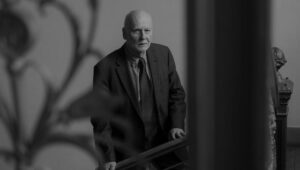
The few preceding paragraphs could make the reader unfamiliar with his poetry think of Zagajewski as a ‘revolutionary poet’. Duplicating machines, fighting against censorship, unmasking lies of state authorities – those were one of the tasks, or at least actions, poets were involved in in the period of Romanticism and slightly later, from Victor Hugo to Petőfi and (young) Broniewski.
That was not Zagajewski’s case, however, as he (as a philosopher) was a faithful disciple of Heraclitus. Possibly his most important poetic insight is a continuously persistent image of contradictions inherent in nature, its duality – also inalienable in being human. If so, each human experiences love high and low, joy and despair, solidarity and solitude. Who has once met irony / will burst into laughter / during the prophet’s lecture, who has once / prayed with not just dry lips / will remember the presence of a strange echo / stemming from one of the walls. A poem grows / on contradiction but it can’t cover it declares the poet in ‘An Ode to Plurality’ and he always experienced that in how he felt about history and collectiveness. Solidarity: yes, with a small ‘s’ and that other, so important in 1986, capitalised, but equally solitude, distancing himself from collective experiences, collective emotions and collective memory. Is that not, incidentally, best expressed in the second stanza, of ‘Electric elegy’ already quoted above?
Of course I know only
the songs of Schubert brought you the jade
of true joy. To Chopin’s waltzes
your electric heart throbbed delicately
and firmly and the cloth over the speaker
pulsated like the breasts of amorous girls
in old novels.
Bierut and Schubert, Chopin and Hitler; Adam Zagajewski listen to different voices and did not want to be formulaically characterised as a ‘political’ or ‘patriotic’ poet. Reproaching – someone else or himself seen in the mirror? – he wrote:
Look, your life, too, is becoming
merely olive oil, over which
a scarlet flame of the fatherland wanders.
This country, depression, will take your
youth and turn it into a slogan,
it will take joy away from you and make you worry,
this country, a broken clock, a black ribbon.
(‘A Slogan’)
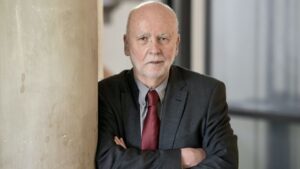
That is what he wrote. Yet in the same volume, Canvass (1990), one of his best, he recalled as follows:
The blackened river ran through the park. (…)
Where starlings sang now, a branch
of Auschwitz had been built: under
the grass the bandages
from the Russian infirmary were interred,
therefore the meadow is swollen and rich.
(‘The Blackened River’)
He wrote poems about dying in 1940, in Lvov / occupied by the grey Red Army / (feldgrau uniforms were in Przemyśl) – dedicated to Konstanty Jeleński and Joseph Brodsky, both still alive at that time, as well as Anatoly Marchenko, worn out in a Soviet labour camp four years previously – about the Holocaust as well as the demons of Eastern Europe. Those demons appeared also in his elegiac poem about Mircea Eliade; it is not unfounded to presume that farewell to Adam Zagajewski too will be bidden laughing inaudibly, with admiration.
Author: Wojciech Stanisławski
Translation: Mikołaj Sekrecki

